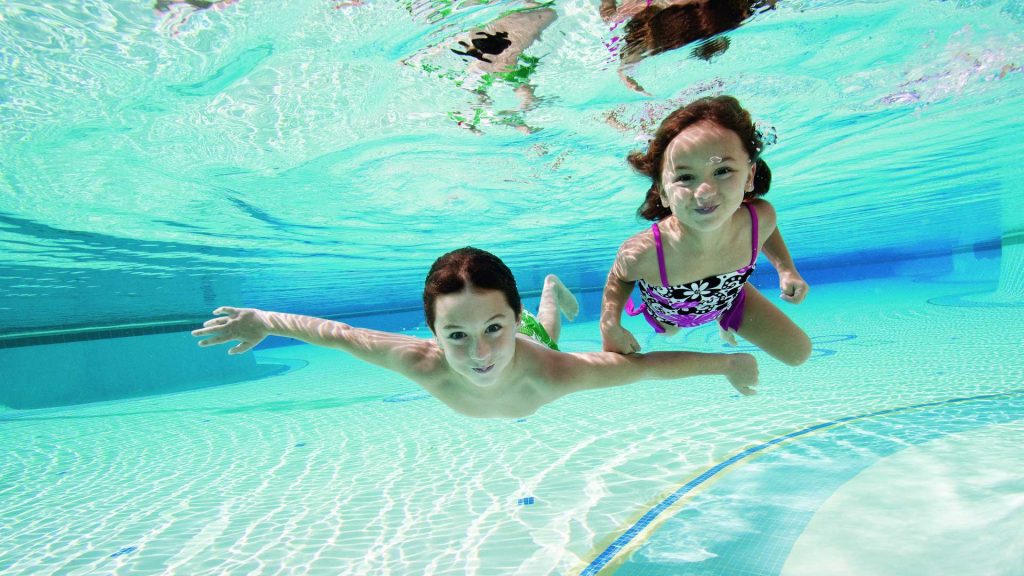Swimming Lessons for Children with Special Needs

Many children with special needs are unable to access regular swimming lessons due to their difficulties in learning, co ordination problems, concentration problems or communication difficulties. They may also struggle to find a swimming instructor competent and confident in teaching them.
A developmental swim programme provides a positive outlook and emphasis on the strengths and unique attributes of each swimmer, in relation to any special needs. It focuses on water education, developing water safety and swimming skills and is customised for each child’s emotional and developmental abilities, with the goal to help each child become physically active, build self-confidence and self esteem, learn the life-saving skill of swimming, and eventually to offer them a small group experience having fun in the water.
Benefits of swimming for children with special needs:
As well as the development of water safety, aquatic and swim skills, the benefits of teaching swimming to the special needs child range from gross motor to cognitive skills, to muscle strength and endurance and improvement in overall communication skills. Swimming helps fosters courage, confidence, and trust and helps to develop friendships. It’s great for socialization and relaxation.
Swimming has long been used as a therapy for people of all ages and abilities. It is particularly useful as a teaching aid for children with learning difficulties, allowing them to focus on the challenging task of coordinating their bodies to swim as well as being fun and excellent exercise. Starting as early as possible gives these children the most likelihood of learning to swim, as with all children.
Autism: Teaching a child with autism to swim offers more than cognitive and physical benefits. It also has enormous safety advantages. Swimming is an excellent way to develop the motor skills of an autistic child and not only the large muscles of the child, but also the cerebral skills of coordination. As autistic children are often excluded from team sports, swimming provides a social outlet where a child can build confidence and social skills.
Attention Deficit Hyperactivity Disorder: Children with attention deficit disorder with hyperactivity (ADHD) often have boundless energy, so swimming can offer the perfect outlet. Olympic swimming champion Michael Phelps suffered from ADHD as a child and was unable to sit still in class. As an alternative to the ADHD treatment
Ritalin, Phelps turned to swimming to curb his hyperactivity and quickly found, as he recalled to “Sports Illustrated,” that the process of training and competing helped him find focus as well.
Down syndrome: Swimming is a great way to help Down syndrome children stay active. It is primarily an individual sport, and so a Down syndrome child can do it without feeling under pressure to compete with other children or feel self-conscious in a team. Swimming can also provide therapy for a Down syndrome child, allowing him to relax as he enjoys the sensation of floating in the water. There is no reason a child with Down syndrome can’t become an excellent swimmer.
Pool Requirements:
- Water temperature: The temperature in a swimming pool used for teaching children with special needs must be maintained at a warm enough temperature to promote muscle relaxation and prevent discomfort, ideally above 30C. This helps the children to feel at ease and comfortable, promoting a sense of well being. In Barbados this can be achieved, year round, through the use of a pool solar heater and when necessary, a pool cover when the pool is not in use.
- Depth: Teaching pools for teaching swimming to children with special needs should be of a depth that adults can stand in comfortably. This is crucial as sometimes parents may need to be in the pool and they may not be water confident. Also older children will need to be able to stand, or be supported by standing adults.
- Cleanliness and facilities: The pool and surrounding areas should be well maintained with a standard of hygiene. Changing facilities must be made available, with areas for a child to relax or calm down quietly, along with sufficient washrooms.
- Water quality: The quality of the water must be monitored and maintained to a high level, with well balanced chemicals.
- Atmosphere: The pool should have a relaxed atmosphere and not be crowded, to promote a sense of well being and to avoid children with particular difficulties feeling overwhelmed by noise or crowds.
Well maintained private pools are often able to provide the best environment for teaching swimming to children with special needs, with a small, clean and friendly environment, with limited numbers of people around.
Instructors:
In order to teach children with special needs, instructors must hold full swimming teaching qualifications, and specialist teaching qualifications and / or a therapeutic qualification and understanding of the difficulties the children may present with. This is to ensure standards of safety and quality of instruction are fully maintained, through understanding needs and how to approach them. This safeguards the child through an understanding of dangers, and emergency response, as well as ensuring that the swimming is taught confidently using recognised techniques, in relation to the needs and development of the child.
To register or to be put on a waiting list for Swimming lessons please click here